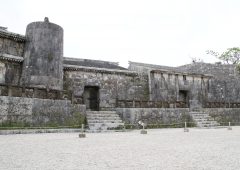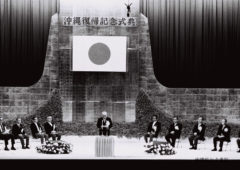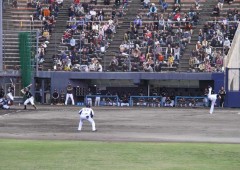2013.03.08
Marine moves to Guam could be delayed ‘years’
The austerity cutbacks to U.S. government spending are now in effect, and political leaders are predicting the transfer of U.S. Marines from Okinawa to Guam could be one of the victims.
Guam’s Representative to the U.S. Congress says the Marines’ relocation plan could be pushed back “two or three years, maybe more.” Rep. Madeleine Bordallo made the prediction following a meeting at the Pentagon with Deputy Secretary of Defense Ashley Carter and Guam Governor Eddie Calvo. The budget cuts, simply referred to as sequestration, will slash discretionary spending by the federal government to the tune of $1.2 trillion over the coming decade.
U.S. Defense spending is expected to absorb 9% of those cutbacks, about $46~50 billion this year. Officials say the Defense Department is bearing the largest burden of the mandated budget cuts. Sequestration will, however, hit hard at the Transportation and Interior Departments, who have much of the infrastructure responsibilities in advance of a transfer of troops to Guam.
“Before the first marines can come in, you’ve got to make sure you have the roads, the sewers, water, power…” says Gov. Calvo. “We’ve already reached the limit of our capacity.” He spoke after testifying before the Senate Armed Services Committee. The agreement between Japan and the U.S. in 2006 calls for 8,000 Marines to move from Okinawa to Guam by 2014. That number has been reportedly cut, and the timelines moved back.
Bordallo and Calvo say they’re unhappy with the pushback, because it interferes with the economic stimulus they’re depending upon the relocation to provide. “In the very beginning,” says Bordallo, we were very excited about the plans, and then when everything slowed down, you know, it was disappointing.” Still, Calvo is holding hope the relocation is a “perfect collaboration” for both the people of Okinawa and the people of Guam, noting “obviously there’s some exasperation” about the delays.
Other budget cuts attributed to sequestration are going to impact the Asia-Pacific region. Military readiness is expected to suffer, and Army Chief of Staff Gen. Raymond Odierno has told the U.S. Senate that if sequestration does kick in, his army would suffer “seriously degraded capabilities” that could make it difficult to deal with threats in the Asia-Pacific. On top of that, the Navy has detailed plans to reduce vessel and aircraft operations in the Asia theater by one-third, while also canceling scheduled deployments.

 2024.07.07
2024.07.07 2024.06.21
2024.06.21 2024.05.15
2024.05.15 2024.02.07
2024.02.07 2024.01.31
2024.01.31 2023.11.02
2023.11.02 2023.10.26
2023.10.26 2023.09.29
2023.09.29 2023.09.01
2023.09.01






